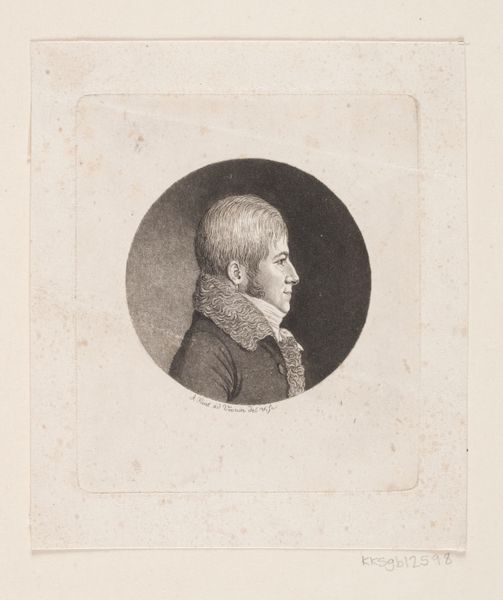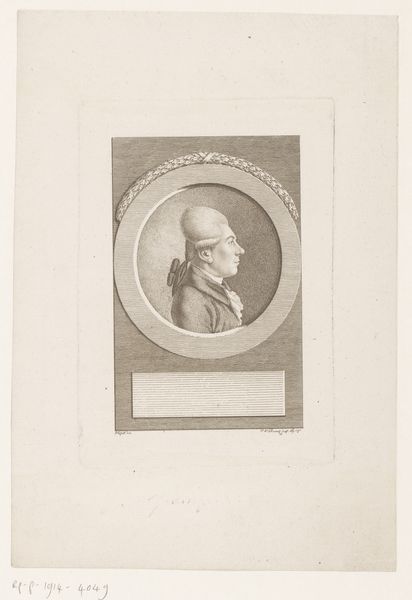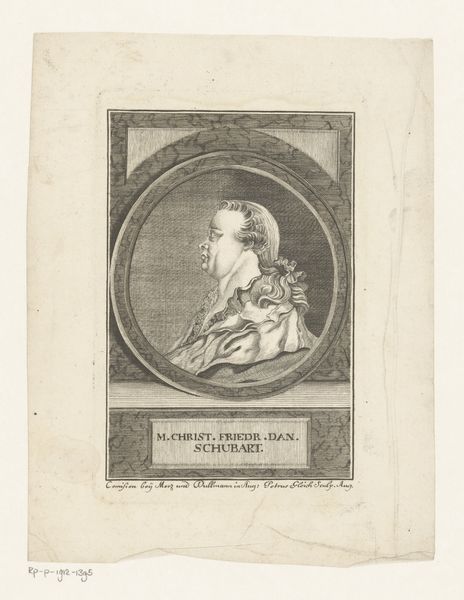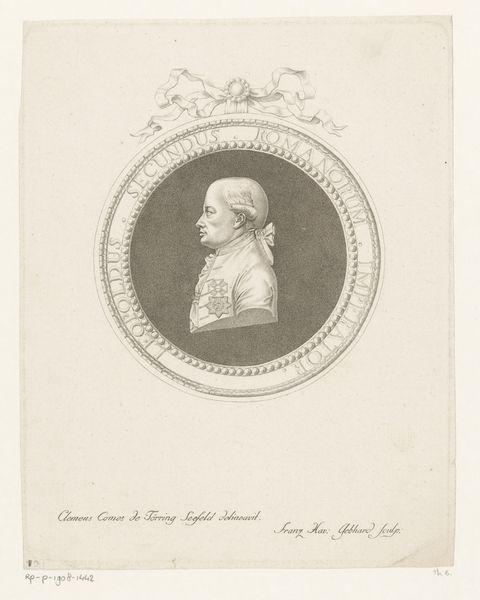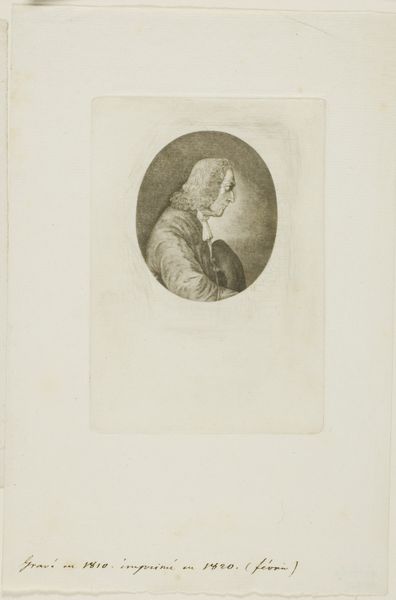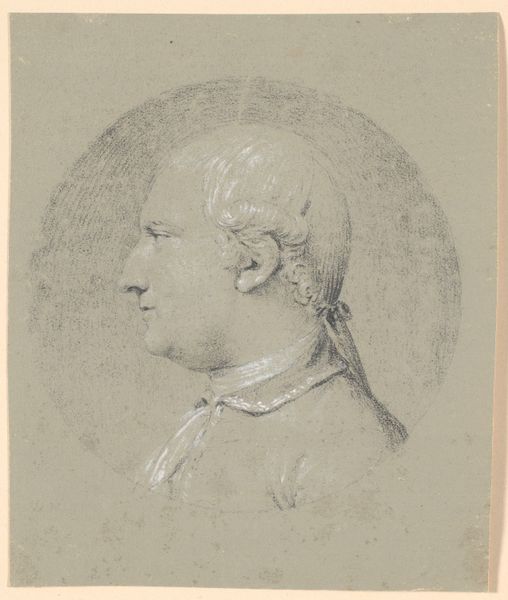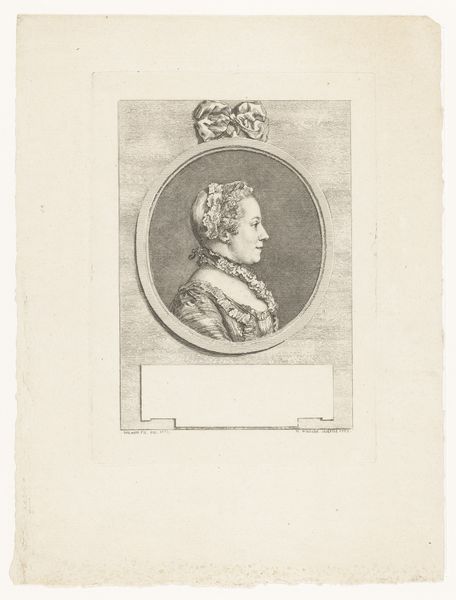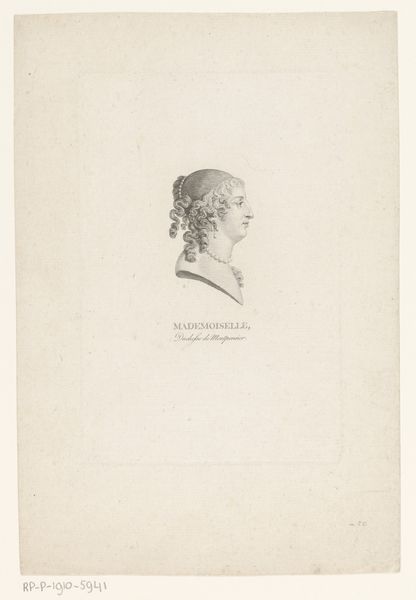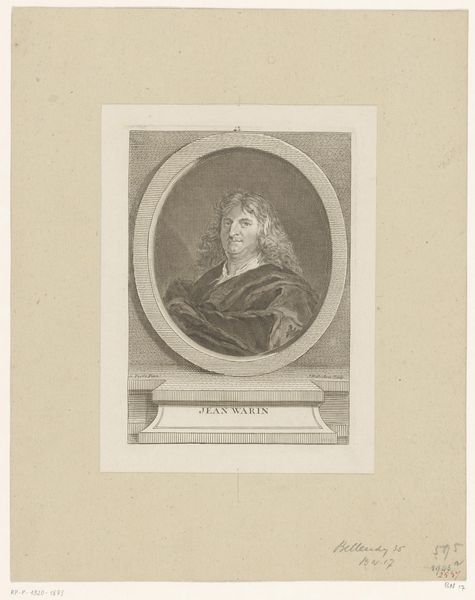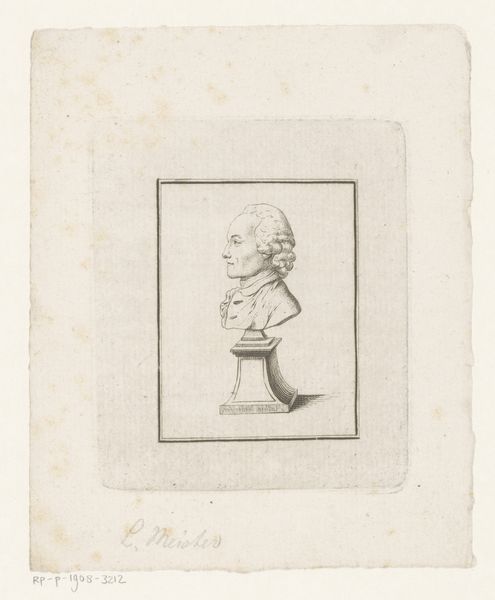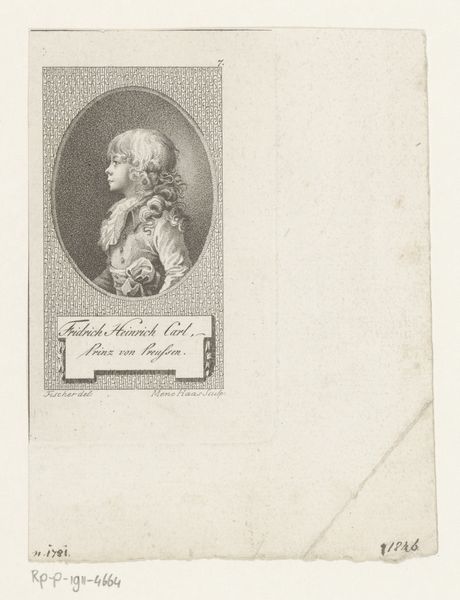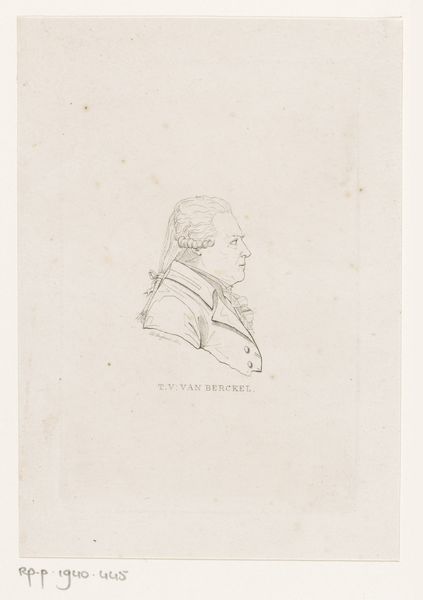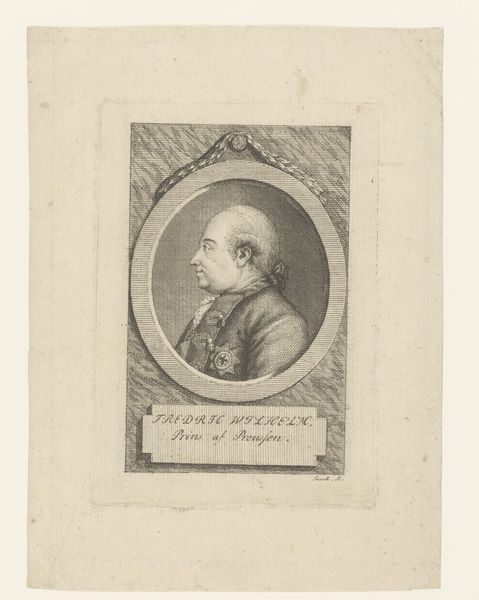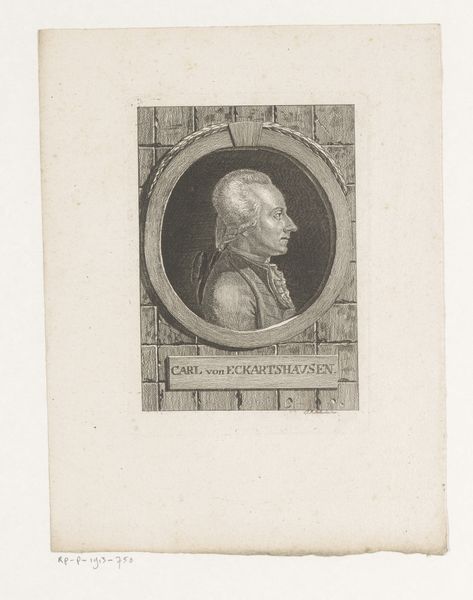
#
quirky sketch
#
pen illustration
#
pen sketch
#
old engraving style
#
personal sketchbook
#
ink drawing experimentation
#
pen-ink sketch
#
sketchbook drawing
#
storyboard and sketchbook work
#
sketchbook art
Dimensions: height 98 mm, width 85 mm
Copyright: Rijks Museum: Open Domain
Curator: We’re looking at "Portret van een man," a portrait from sometime between 1803 and 1846, created by Paulus Charles Gerard Poelman. It appears to be an ink drawing, possessing a distinctive old engraving style. Editor: Well, isn't this delightfully bizarre! It looks like something I might find scrawled on the back of a tavern napkin—a caricature encased in a ring of tiny rodents and thorny vines. I mean, is that a mole or some sort of fantastical facial growth? Curator: That "growth," as you call it, complicates the sitter’s identity, certainly. Skin conditions often carried a heavy social stigma, intertwining physical appearance with moral judgment in the 19th century. Its placement front and center challenges normative standards of beauty and invites speculation about social positioning and class. Editor: And let's not ignore the sneaky cat lurking behind our subject! Is it an accomplice? An amused observer? Maybe it knows something we don't about this fellow and his rather… unique charms? I detect more than a hint of sly humor here; it feels a bit subversive. Curator: Precisely. The presence of animals, the casual rendering—it reads as more of a personal commentary, a raw and immediate glimpse into a particular perception. The fact it mimics the traditional style with a contemporary lens could position it as a criticism. A sardonic portrayal within this historical moment. Editor: Oh, I like that—a visual raspberry blown at the stuffy portrait conventions! And the ring of what appear to be mice holding up the decorative floral wreath really takes the cake. Maybe a statement of the subject being surrounded by scurrying detractors? It's quirky, no doubt, but makes me ask: who exactly is this portrait about? Curator: Perhaps it's less about pinpointing a specific person, and more a representation of power dynamics during a period of socio-political restructuring in Europe and this man's placement within the emerging middle class. Editor: Intriguing food for thought! Who knew so much could be gleaned from such a peculiar sketch? Curator: Indeed, it highlights the potent ways that portraiture captured, reflected, and, at times, challenged the shifting contours of 19th-century society.
Comments
No comments
Be the first to comment and join the conversation on the ultimate creative platform.
